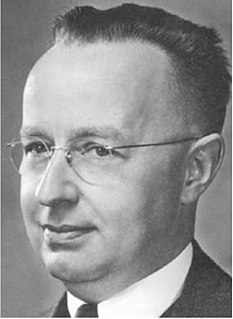A Quote by Tommy Lee Jones
My idea in terms of managing a narrative, or in thinking in my creative life, is that you could easily argue that the past, the present and the future all occur simultaneously, and if you can postulate that, then you're not strictly bound to a linear narrative.
Related Quotes
We human beings have enormous difficulty in focusing on the present; we always thinking about what we did, about how we could have done it better.... or else we think about the future, about what we're going to do.... But at this precise moment, you also realize that you can change your future by bringing the past into the present. Past and future only exist in our mind. The present moment, though, is outside of time, it's Eternity.... It isn't what you did in the past the will affect the present. It's what you do in the present that will redeem the past and thereby change the future.
Marriage is an effort to legalize love. It is out of fear. It is thinking about the future, about the tomorrows. Man always thinks of the past and the future, and because of this constant thinking about past and future, he destroys the present. And the present is the only reality there is. One has to live in the present. The past has to die and has to be allowed to die.
Y'know, I think, inherently, when you hear something like a teenage narrative come into play, even the idea that it's being called 'teenage' is a notion that it's being reduced to a problem that's not quite adult. That's a problematic thing to say about a narrative that could actually be dangerous, could be hurtful, could be upsetting.
In order for my live performance to work, which is about generating a focused energy for about an hour and a half, it is necessary for me to listen and take in someone else's focused energy the day of or the day before the live show. That can transpire through a conversation, or inspiration can occur by looking through any type of visual book which sparks a narrative. That narrative then becomes today's seed and can then take root in music terms, where a sonic tree begins to grow.
There's some ambient music that doesn't do anything. I wouldn't say that that's narrative. It is narrative in that it creates a sort of world where nothing happens, where really nothing happens, so you become a different person after hearing eight minutes of exactly the same thing. Yes, I hear music all the time in which one idea is strung together to another idea, and I feel that such music is non-narrative.
There's no linear narrative - the structure is more like a series of variations on a theme (how identity is shaped by language), with the past constantly bleeding into the present, dreams into reality. And the language, while incredibly lyrical in places, also has this underlying dissonance, the sense of it having itself been translated.
I'm obsessed with this idea of storytellers and people who have a narrative, and sometimes sustain a relationship because they're telling a narrative and someone is listening to that. Often the nature of the relationship is determined by how well they tell the story, or someone else's ability to suspend disbelief, or infuse into their narrative something which they may not even be aware of.




































